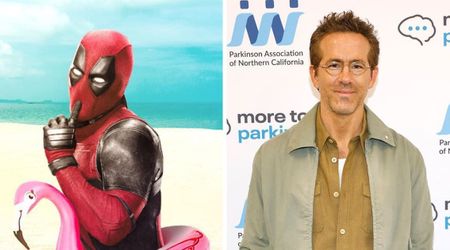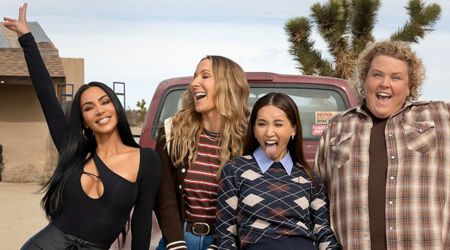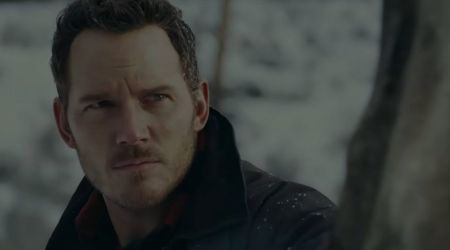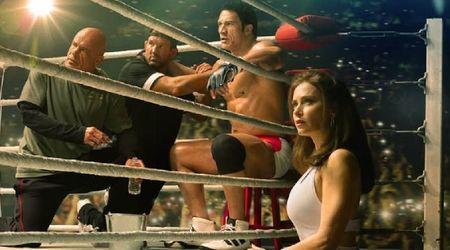‘To Kid or Not To Kid’ explores women’s reproductive rights but it necessitates questioning procreation in the face of ‘Climate Apartheid’

The documentary ‘To Kid or Not to Kid’ made by filmmaker Maxine Trump (no relation to the U.S. president) opened in limited theaters in New York and Los Angeles on November 15. It will be available for video-on-demand on December 3 on iTunes and Amazon. Over the course of an hour and 15 minutes, Trump explores the complexities of her decision to not have a child. It’s a sensitive film that is relevant on many counts.
From women’s want for autonomy over their bodies to how society casts judgment on those who wish to not procreate, it explores many avenues. But there is another factor that, time and again, has presented itself, not just through films like this, but also in fiction and in sociological hypotheses. It’s a concern for the environment.
Recall the billionaire Bertrand Zobrist in Dan Brown’s ‘Inferno’, who created a pathogen that would decimate Earth’s population to half, because he believed human beings were carcinogenic to the planet. Or the supervillain Thanos in Marvel’s ‘Avengers’ series who likened his genocides to restoring balance. Thanos’ argument being, “The universe is finite, its resources finite, if life is left unchecked, life will cease to exist. It needs correction... I am the only one who knows that. At least I'm the only one with the will to act on it.”
It’s not an original idea. Thomas Robert Malthus, an English cleric and scholar, published a theory in 1798, wherein he suggested that through preventative checks and positive checks, the population would be controlled to balance the food supply with the population level.
There are many who reject these ideas as not just extreme but also wrong, even if a subreddit called “Thanos Did Nothing Wrong” has memefied the supervillain’s Malthusian belief system. But this article doesn't seek to argue for either side. Because, perhaps, it is too late already. It’s not a question of cutting the population in half through pathogens or Infinity Stones. It’s the question of whether procreating is an ethical option anymore.
Rust Cohle in ‘True Detective’ says: “I think human consciousness, is a tragic misstep in evolution. We became too self-aware, nature created an aspect of nature separate from itself, we are creatures that should not exist by natural law. We are things that labor under the illusion of having a self; an accretion of sensory, experience and feeling, programmed with total assurance that we are each somebody, when in fact everybody is nobody. Maybe the honorable thing for our species to do is deny our programming, stop reproducing, walk hand in hand into extinction, one last midnight, brothers and sisters opting out of a raw deal.” But unlike the nihilistic ramblings of Cohle, the ethical conundrum we face is that the world we plan to leave for our future generations is not a world that will be habitable.
They will be bequeathed upon with the cruel gift of a world without resources enough to survive. And that, in turn, would lead to, among other things, violation of what we like to call human rights. In June this year, Philip Alston, a U.N. special rapporteur on extreme poverty and human rights, suggested the climate crisis would soon lead to something called “climate apartheid”.
“Perversely, while people in poverty are responsible for just a fraction of global emissions, they will bear the brunt of climate change, and have the least capacity to protect themselves,” Alston suggested. “We risk a ‘climate apartheid’ scenario where the wealthy pay to escape overheating, hunger and conflict while the rest of the world is left to suffer.” The report ominously concluded, “Human rights might not survive the coming upheaval."
So consider this. While we have a biological (and an anthropological) imperative to procreate, what kind of a world would be subjecting the future generations to? There are those, of course, who feel optimistic about our chances. They believe the effects of environmental degradation could be reversed.
But that optimism looks naive when you make even the shallowest of dives into the topic. The latest edition of Hassan Minhaj's comedy web talk show 'Patriot Act' is evidence that even our fashion choices have a lasting impact on the environment and we seem to be getting nowhere close enough to even begin to acknowledge such a thing.
Not for a sociological or ecological reason, but for moralistic reasons, we need to grapple the Shakesperian question Maxine Trump asks in her documentary: To kid or not to kid?
'To Kid or Not to Kid' opened in limited theaters in New York and Los Angeles on November 15. The documentary will be available for video-on-demand on December 3 on iTunes and Amazon.










